People who have experienced homelessness are more likely to have poor physical and mental health than the general population. Poor mental and physical health is both a cause and consequence of homelessness. Chronic and multiple health needs are common and often go untreated. Homeless people are also far more vulnerable to issues relating to alcohol and drug use. Multiple health needs alongside drug and alcohol use can act as a barrier to accessing mainstream health services, and as a result often end up using more costly primary healthcare services.
68% of homeless people report having had a long-term illness, disability or infirmity. 22% for the general population. (source: Health Needs Audit, 2022 - Homeless Link)
Homeless people are over three times as likely to report having had a long-term illness, disability or infirmity than the general public. 80% of those with a physical health problem have more than one such condition, with 29% having between 5 and 10 diagnoses. The difficulty of managing numerous health conditions whilst experiencing homelessness cannot be understated. Managing the associated appointments, medications, and symptoms adds to an already complex job of navigating the homelessness system. (Health Needs Audit, 2022 - Homeless Link)
82% of homeless people have a mental health diagnoses, in comparison with 12% of the general population. (source: Health Needs Audit, 2022 - Homeless Link)
Homelessness is a stressful, lonely and often traumatic experience which has a major impact on mental health ('I was all on my own', 2015 and It’s No Life At All, 2016). Serious mental health issues such as schizophrenia, bipolar and post traumatic stress disorder (PTSD) are far more common amongst homeless people (Health Needs Audit, 2016 and The unhealthy state of homelessness, 2014). Suicide rates are nine times higher demonstrating the very real need of effective support for homeless people (Homelessness Kills, 2012).
41% use drugs and alcohol to cope with mental health issues (source: The unhealthy state of homelessness, 2014 - Homeless Link)
Homeless people are far more vulnerable to issues relating to alcohol and drug use. Multiple diagnosis of substance and mental health issues can be a barrier to services (The unhealthy state of homelessness, 2014). Rates of alcohol and drug use are four times higher than in the general population.
Over 120,000 people experience homelessness as well as one or more other forms of disadvantage
Two thirds of the homeless population experience severe and multiple disadvantage such as substance misuse or offending behaviour. These issues create barriers to accessing services as it can be difficult to get the specialist support they need or services may be unwilling to provide support (Hard Edges, Lankelly Trust Foundation 2015 (PDF)). As result of these barriers, homeless people are more likely to use acute/A&E health services which are less able to support all their health needs whilst costing £85 million a year (The unhealthy state of homelessness, 2014).
Find out more about the impacts of homelessness.
Find out more about what it's like to face housing insecurity and what people experiencing homelessness need.

Accessing mental health support while experiencing homelessness is challenging and complex. This...
View more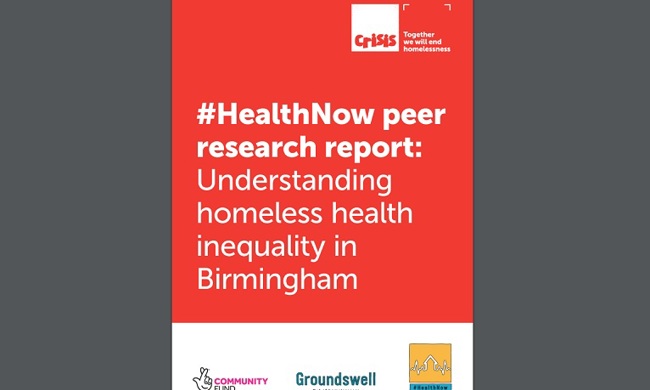
#HealthNow peer research report: Understanding homeless health inequality in Birmingham (2021) Be...
View more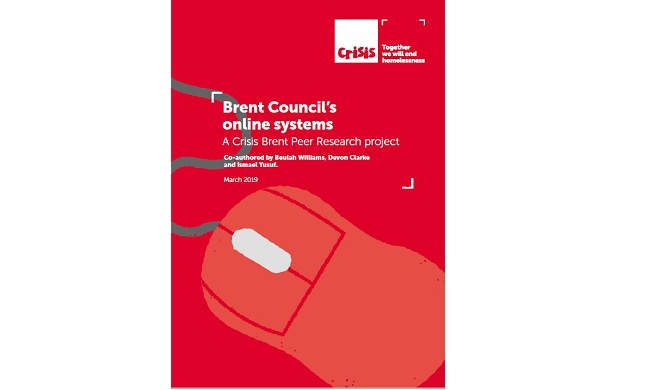
This report presents the findings from a peer research led project by Crisis Brent. It explores the experience and impact of Brent council’s digital by default approach housing and homelessness support and advice.
View more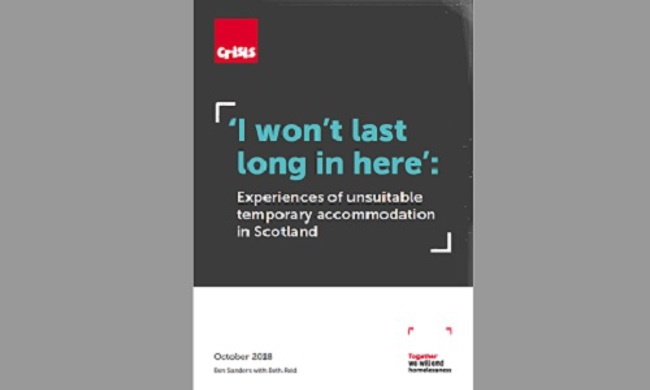
This report presents the findings of a survey exploring the experiences of people living in unsuitable temporary accommodation in Scotland.
View more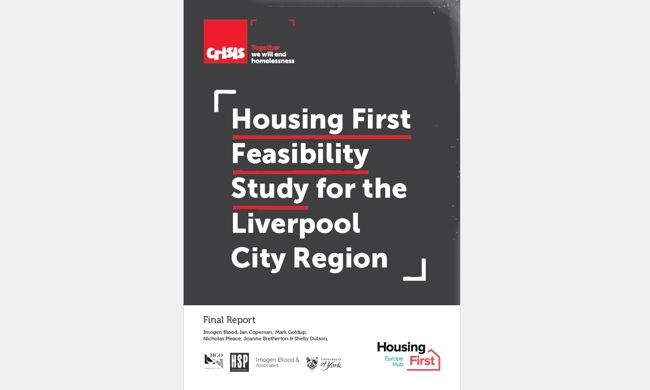
Feasibility of implementing Housing First at scale within the Liverpool City Region
View more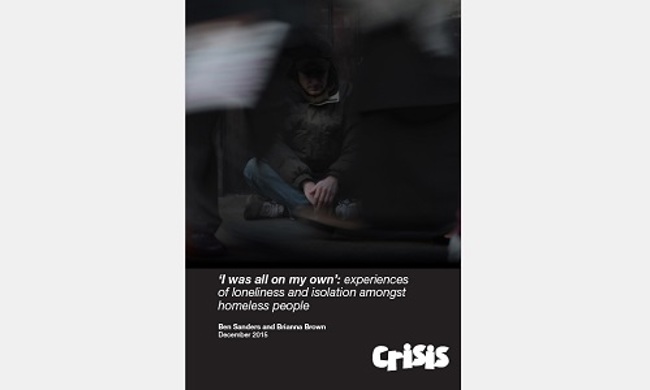
Experiences of loneliness and isolation amongst homeless people.
View more
Independent research from 2013 which commends the mental health services at Crisis for enhancing well-being and helping homeless people towards work and social integration.
View more
An analysis of the mortality of homeless people in early 21st Century England.
View more
A research briefing on mortality amongst homeless people
View more
A review of the literature.
View more